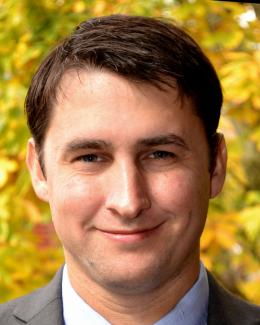Artificial intelligence is becoming an increasingly valuable tool for ORNL researchers tackling the many mysteries of cancer. Credit: Getty Images.
A team of researchers from the Department of Energy’s Oak Ridge National Laboratory was recognized by the National Cancer Institute in March for their unique contributions in the fight against cancer.
ORNL’s Heidi Hanson and Noah Schaefferkoetter, as well as Shang Gao (formerly of ORNL), were part of the Cancer Surveillance Data Collaborators Group that received the “2022 NCI Director's Award – Division of Cancer Control and Population Sciences, Cancer Surveillance Data Collaborators, for Data Science-Scientific!”
The award was given “in recognition of the scientific collaboration leading to new deep learning models that will help the United States achieve near real-time reporting of cancer incidence.”
The team’s work advanced NCI’s Modeling Outcomes Using Surveillance Data and Scalable Artificial Intelligence for Cancer, or MOSSAIC, project, which applies natural language processing and deep learning algorithms to population-based cancer data collected by NCI's Surveillance, Epidemiology and End Results, or SEER, program. MOSSAIC advances computational and informatics solutions to support SEER and lays the foundation for an integrative data-driven approach to modeling cancer outcomes at scale and in real time so that scientists may better understand the impact of new diagnostics, treatments and other factors affecting patient trajectories and outcomes.
The team’s 2022 research, for which it was honored, saw MOSSAIC applied to 17 cancer registries (16 of which belong to SEER), up from just three the year before. The team was able to autocode records across the registries. By automating the categorization of vast reams of data, the research saves precious time for registrars who otherwise would be forced to manually code the information.
The breakthrough brings the field closer to real-time reporting and has already been used to gauge the impact of COVID-19 on cancer diagnoses. Traditionally, there is a 27-month gap following a cancer diagnosis and when that data is available for research, according to Hanson, team member and ORNL group leader for Biostatistics and Multiscale System Modeling. But thanks to the team’s work they were able to investigate the relationship in a matter of months.
The team used a powerful combination of computing resources to tackle this complex problem, including tapping the massive power of Summit, at the time the nation’s most powerful computer open to users. The bulk of the work, however, was done on ORNL’s Knowledge Discovery Infrastructure, which provides ORNL researchers and collaborators probing the boundaries of medicine a secure environment provisioned with virtual machines, high-performance computing and a wide catalog of health data and tools.
“The field of population-health surveillance has considerably advanced over the past three years by leveraging DOE computing resources to solve some of the biggest challenges in the field,” said Hanson. “The MOSSAIC project’s team science approach to AI for cancer research has moved rapid population-level cancer surveillance within reach. I am looking forward to more paradigm shifting research as the partnership continues to evolve.”
Added team member Noah Schaefferkoetter: “This was a team effort and no one on the MOSSAIC project should be neglected. The practical impact wouldn’t be possible without their support. In addition to the people currently still on the task, special thanks to Shang Gao, Blair Christian, Jacob Hinkle and – of course – Gina Tourassi who built the project up. It’s an honor to be standing on the shoulders of these giants.”
Other team members outside of ORNL included Margaret Adamo, Olalekan Adeyemi, Sylkk Ansah, Sara Bonds, Linda Coyle, Lois Ann Dickie, Elizabeth Hsu, James. A. Mays, Serban Negoita, Valentina I. Petkov, Lynne Schumacher-Penberthy, Jennifer Stevens, Ngoc Tran and Alison L. Van Dyke.
The awards were presented on March 29 at NCI’s Shady Grove Campus in Rockville, Md.
UT-Battelle manages ORNL for the Department of Energy’s Office of Science, the single largest supporter of basic research in the physical sciences in the United States. The Office of Science is working to address some of the most pressing challenges of our time. For more information, please visit energy.gov/science.





